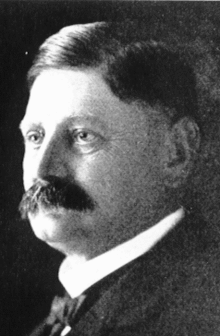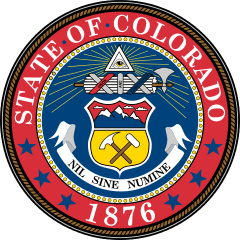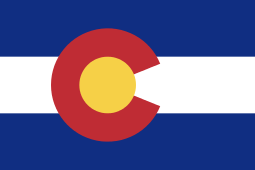John F. Shafroth
| John Franklin Shafroth | |
|---|---|
 | |
| United States Senator from Colorado | |
|
In office March 4, 1913 – March 3, 1919 | |
| Preceded by | Simon Guggenheim |
| Succeeded by | Lawrence C. Phipps |
| 18th Governor of Colorado | |
|
In office January 12, 1909 – January 14, 1913 | |
| Lieutenant | Stephen R. Fitzgarrald |
| Preceded by | Henry A. Buchtel |
| Succeeded by | Elias M. Ammons |
| Member of the U.S. House of Representatives from Colorado's 1st district | |
|
In office March 4, 1895 – February 15, 1904 | |
| Preceded by | Lafe Pence |
| Succeeded by | Robert W. Bonynge |
| Personal details | |
| Born |
June 9, 1854 Fayette, Missouri |
| Died |
February 20, 1922 (aged 67) Denver, Colorado |
| Political party |
Republican (1895-1897) Silver Republican (1897-1903) Democratic (1903-1922) |
| Alma mater | University of Michigan |
| Profession | Law |
John Franklin Shafroth (June 9, 1854 – February 20, 1922) was a representative, senator, and governor from Colorado, United States.
Early life
Born in Fayette, Missouri, he attended the common schools and graduated from the University of Michigan at Ann Arbor in 1875. He studied law and was admitted to the bar in 1876 and began practice in Fayette. He moved to Denver, Colorado, in 1879 and continued the practice of law.
Political career
He was city attorney from 1887 to 1891 and was elected as a Republican to the 54th Congress as a representative. He then joined other Colorado officials, such as Senator Henry M. Teller, in leaving the Republicans to join the Silver Republican Party, the third party on whose ticket he was re-elected to the 55th, 56th, and 57th Congresses.[1] To the 58th Congress, he presented credentials as a Democratic member-elect. Thus, he served in the House from March 4, 1895 to his resignation on February 15, 1904, when he declared that fraud in 29 electoral precincts made him unable to assert that he had legitimately won the election and requested for his opponent, Robert W. Bonynge, to replace him.[2] Subsequently, Shafroth was often referred to (sometimes admiringly, sometimes sarcastically) as "Honest John."[3]
Shafroth was Governor of Colorado from 1909 to 1913 and was instrumental in bringing in Colorado's ballot initiative institutions. In 1912, he was elected as a Democrat to the Senate, where he served one term, from March 4, 1913, to March 3, 1919; he was an unsuccessful candidate for re-election in 1918. While a Senator, Shafroth was chairman of the Committee on Pacific Islands and Puerto Rico (63rd to 65th Congresses); the leading Senate sponsor of the Jones-Shafroth Act of 1917, which granted citizenship to Puerto Ricans; and a member of the Committee on the Philippines (65th Congress).
Later life and death
After leaving the Senate, he served as chairman of the War Minerals Relief Commission from 1919 to 1921.
He died in 1922 and was interred in Fairmount Cemetery in Denver. His personal and official papers are archived at several locations including the Colorado State Archives (gubernatorial papers), the Colorado Historical Society Library, and the Denver Public Library's Western History and Genealogy Department.
References
- ↑ Hagerman, Frank (July 2004). "John Franklin Shafroth". The Colorado Lawyer. 33 (7): 15. Retrieved 2013-06-16.
- ↑ Very Honest Man Astounds Lower House of Congress, in The Tacoma Times (via Chronicling America); published February 15, 1904; retrieved 2015-01-03.
- ↑ Leonard, Stephen J.; Noel, Thomas J.; Walker, Donald L., Jr. (2003). Honest John Shafroth: A Colorado Reformer. University Press of Colorado. ISBN 978-0-942576-07-8.
External links
- United States Congress. "John F. Shafroth (id: S000279)". Biographical Directory of the United States Congress.
- John F. Shafroth at Find a Grave
| United States House of Representatives | ||
|---|---|---|
| Preceded by Lafayette Pence |
Member of the U.S. House of Representatives from Colorado's 1st congressional district 1895–1904 |
Succeeded by Robert W. Bonynge |
| Political offices | ||
| Preceded by Henry Augustus Buchtel |
Governor of Colorado 1909–1912 |
Succeeded by Elias Milton Ammons |
| United States Senate | ||
| Preceded by Simon Guggenheim |
U.S. Senator (Class 2) from Colorado 1913–1919 Served alongside: Charles S. Thomas |
Succeeded by Lawrence C. Phipps |



